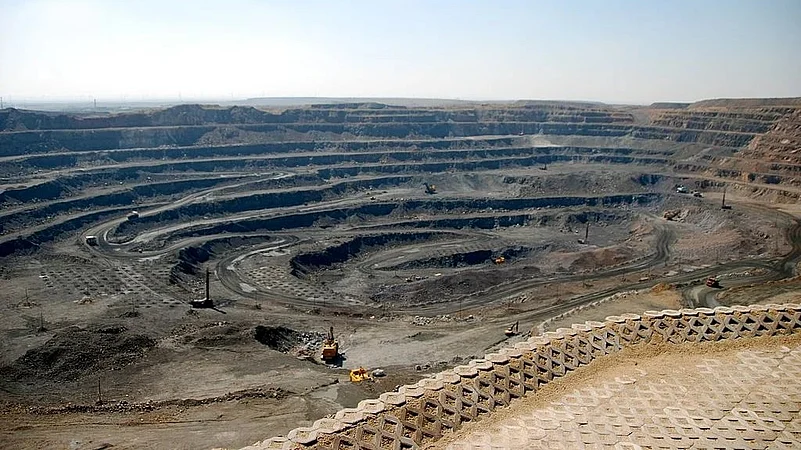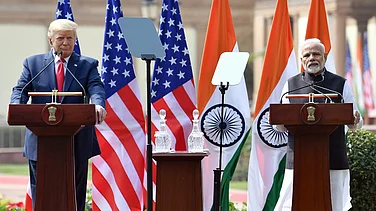China’s ban on export of rare earth material has got leaders around the world on the edge as restrictions on the supply of these critical minerals threatens to completely stall production in several key industries. But as the world, including India, grapple with the shortage and explore alternate supply chains, China is strengthening its near monopoly over rare earths by keeping a strong hold over conflict-torn Myanmar.
China relies on Myanmar for heavy rare earth materials like terbium and dysprosium, which play crucial roles in high-tech manufacturing, including in defense, aerospace and renewables sector. Nearly half of the world’s heavy rare earths are mined in Myanmar’s Kachin State and then exported to China’s big state-owned mining conglomerates for extraction and refining.
As of last year, Myanmar accounted for about 57% of China’s total rare earth imports, director, Critical Minerals Security Program, Center for Strategic and International Studies, Gracelin Baskaran said, according to CNBC.
China imports these raw materials from Kachin, a region heavily controlled by Myanmar’s armed ethnic militia group, Kachin Independence Army (KIA). The group reportedly receives strong financial and military backing from China. Hence, the political unrest within the country and financial backing to KIA offers China easy access to these mineral resources.
China reportedly doesn’t interfere much in the management of Kachin State’s mines as long as smooth supply of raw material is ensured.
“China is essentially saying look, this is not our problem, this is your responsibility to operate mines how you operate in your country, but we will happily buy all your product. That’s really the situation in a nutshell,” David Merriman told npr.org. Merriman leads the rare earths team of the United Kingdom-based market intelligence firm Project Blue.
China’s Pursuit of Economic Interest Amid Myanmar’s Political Unrest
Myanmar, which shares land borders with both India and China, had tasted democracy for the first time in 2016 after nearly five decades of military rule (Junta). But within just five years of democratic government, Myanmar began making international headlines again after a military coup in 2021. Presently, Myanmar is going through another period of political unrest, with the country's population divided into a minority chunk that sides with the military rule whereas the majority—comprising of a number of ethnic groups—favour a democratic set up. Myanmar’s military controls just 21% of the country’s territory, according to a BBC report.
While Myanmar is going through political unrest, China in the past few years has wielded significant influence over the crisis-hit country’s resources, with its support shifting from military to civilian-led groups and sometimes hanging in between, the Guardian reported. China, however, has officially not sided with either of the groups. But due to its influence over the political affairs of the country, Beijing’s economic interest seems to be benefiting, including the China-Myanmar Economic Corridor that supports Chinese investment in energy resources, infrastructure and access to minerals, including rare earths.
China’s Green Reforms Pushed Rare Earth Hunt in Myanmar
While China imports over 50% of its rare earth supply from Myanmar, according to various reports, its dependence on the neighbouring nation wasn’t sudden. Rather it is an outcome of a gradual supply chain shift post 2015, when the Beijing government revised its environmental laws and imposed stricter liabilities on companies causing pollution.
“Enterprises, public institutions, and other businesses shall prevent and reduce environmental pollution and ecological disruption, and assume liabilities for damage caused by them,” the Chinese government’s revised Environmental Protection Law stated.
The regulation pushed Chinese companies to partner with Myanmar to maintain a stable flow of rare earth minerals. In 2018, however, followed by the civilian movement, the Myanmar government had banned exports of rare earth to China. But the 2021 military coup again gave China an opportunity to restore the supply of rare earth materials from the country.
While the world scouts for alternative sources of rare earths, China’s entrenched position in Myanmar allows it to have continued access to the critical resources.


































